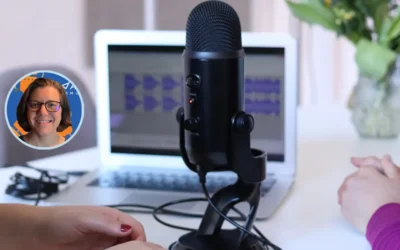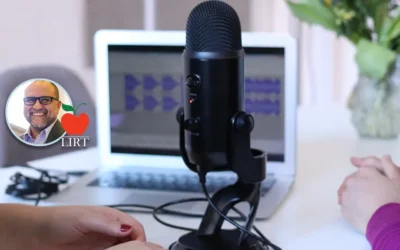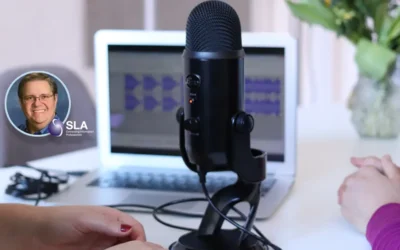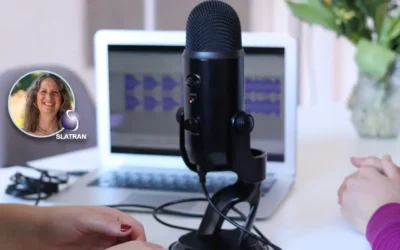Librarians and Technology #10: Deep Thinking Means Focused Attention
Miriam Kahn, MLS, PhD
In this series of posts we’ve been examining skills for special librarians, including digital minimalism, active listening, and focused reading and writing. Taking a step back, we’ll realize this all leads to deep thinking or focused attention to connections and overarching ideas—which ultimately leads to synthesizing and contextualizing ideas, concepts, and applications of technology to information retrieval.
Attention to details
As we think deeply about information, we realize that all information, all knowledge is interconnected. That statement seems very jejune but the concept is often lost as we spend our days in the information center connecting our clients with the information and data they seek. We are constantly busy looking for information, seeking connections, and collecting materials to answer questions and further others’ research.
Rarely do we take the time, and spend the energy, to determine how various technology applications are harnessed to connect information. Rarely do we think about how items in a catalog or a database are connected through the various indexed fields and data tags. Yet, it’s the subject headings and natural language tags that link entries together and make items findable.
Let’s face it, few of us spend time contemplating the theory of how information and technology work together, of how catalogues and databases connect collections. Most of us are practicing information professionals; skills for special librarians focus on using information technologies, not seeking to explain why they work or how they fit within library, archival, and information sciences. As information professionals, we’re good at the details and the technology—and don’t necessarily look at the big picture.
Seeing the big picture
Let’s take the last statement as a given, that as information professionals we are comfortable with the details and how technology works. Doesn’t that mean we are seeing the big picture? We are, but we aren’t necessarily cognizant of looking at how data are linked, or how catalogs and databases connect information. So how do we get to the point of looking and seeing the big picture or the overarching theory?
That’s where deep thinking and focused attention come into play. Here are some ways to engage in deep thinking to enhance your understanding of the whole (the big picture) without being distracted by social media and email. Let’s use catalogs and databases as a way to focus our attention.
Bring your investigative or deductive reasoning powers to the fore. Ask “who, what, when, where, why, and how” to get to the big picture. Keep in mind that “what, why, and how” are the key elements that pull together your attention and thoughts on information retrieval technologies.
Focus your attention on the details while recognizing that we are looking for the forest not the trees. Consider:
- What pieces of data and fields make up a catalog or database?
- How do the fields connect the user to items and records in the catalog? Consider how the fields, like data tags, connect records across the database or catalog.
- How do the fields, subject headings, and data tags interconnect?
- What is the hierarchy? Are there synonymous terms and how are they connected?
- How does searching a catalog or database using those fields facilitate the interconnection of records to one another?
Holding all these questions and their relevant answers in mind, take a step back and look at the big picture. Do you see the web of information and data that connects the records to one another?
- How would you explain the ways catalogs and databases make collections accessible?
- Describe or teach what you’ve discovered to someone else, even someone who works in the information center.
- What examples would you use?
Looking and reading deeply—focusing attention
As you ponder the questions above, it’s time to do some deep reading. For me, as an historian, I’m always looking at the roots of the information profession and searching for concrete, practical examples to explain my theories or ideas. Delve into the writings of librarians and archivists who looked at these questions over the past one hundred and fifty years. What do they have to say? How and why did they design catalog systems to increase access to collections and information? Look at analog and digital examples to explain your theories and explore the veracity of your understanding of integrated data.
Take another step back and look at an even bigger picture of how computer technologies and databases harness the power of indices and connect those indices to one another across time and space.
Deep Thinking
Deep thinking is a key skill for special librarians, and moves our knowledge forward. Focusing our attention on the big picture enhances our understanding of a new technology, subject, or skill. Deep thinking builds on what we know and enhances our understanding and our ability to explain the technology to someone else using common terminology and their jargon, not librarian jargon. Best of all, deep thinking helps develop transferable skills.
Summing it up
Set aside time to think, to eliminate the constant distractions, shallow connections and interconnections. Stop active skimming by diving deeply into a subject or by exploring the ways information technologies facilitate access to collections. Schedule undistracted time to read and learn new things about information technologies.
As information professionals to succeed in an ever changing and growing information environment, we must learn something new every day, with every encounter with our clients and their research needs.
Deep thinking and learning keeps us fresh and engaged in the discipline and associated technologies. Break the frenetic pace, practice deep thinking, and enhance your ability to think and learn.
My next blog post on skills for special librarians will explore incubation time for hatching ideas and recognizing big picture connections.
Miriam Kahn, MLS, PhD
Miriam B. Kahn, MLS, PhD provides education and consulting for libraries, archives, corporations, and individuals. See Miriam’s pieces for Lucidea covering library technology and skills for special librarians.
Similar Posts
Interview with Susannah Barnes about the SLA Data Community
Susannah Barnes is the Co-Lead of the Data Community for the Special Libraries Association. If you work with data in any capacity, this interview will be of interest to you.
Interview with Victor Baeza about ALA’s Library Instruction Round Table
Interview with Victor Baeza, President of LIRT, about how it benefits from and supports special librarians whose roles involve teaching or training.
Interview with Eugene Giudice, SLA Treasurer
Interview with SLA’s Treasurer about the future of the special library profession and how the Special Libraries Association can benefit librarians
Interview with Cara Marcus on Transportation Librarianship and SLA
Interview with Cara Marcus, the president of the Special Libraries Association (SLA) transportation community about transportation libraries and SLA
Hosting service
Enjoy all of the benefits of your Lucidea solution with secure, reliable, stress free hosting
Programs & incentives
No matter your size or budget, we’ve got you covered, today and tomorrow




Leave a Comment
Comments are reviewed and must adhere to our comments policy.
0 Comments